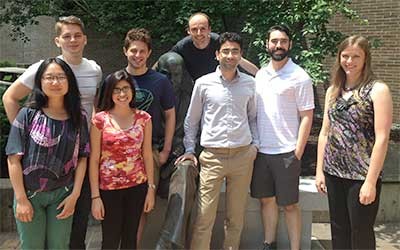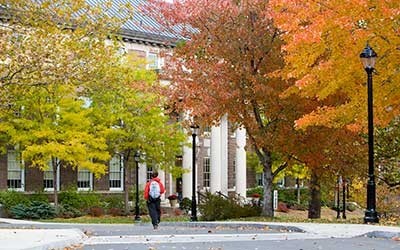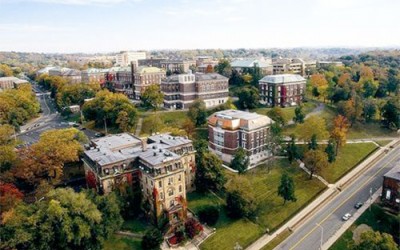Exploring New Theories at the Forefront of Mathematics and its Applications
Doctoral studies form our core graduate program. The faculty in the department excel in numerous areas of applied mathematics and are well versed in many related disciplinary fields, thus they are highly qualified to train graduate students and mentor them in producing high-quality research and dissertations at the intersection of mathematics and the sciences or engineering. Our Ph.D. training opens doors to research careers in academia, government laboratories, and industry and our department has a strong record of placing Ph.D. students in prestigious postdoctoral positions at top-tier universities and labs, and in industrial positions.
Students working for the doctorate must demonstrate high achievement both in scholarship and in independent research. All programs must follow the general rules of the Office of Graduate Education.





